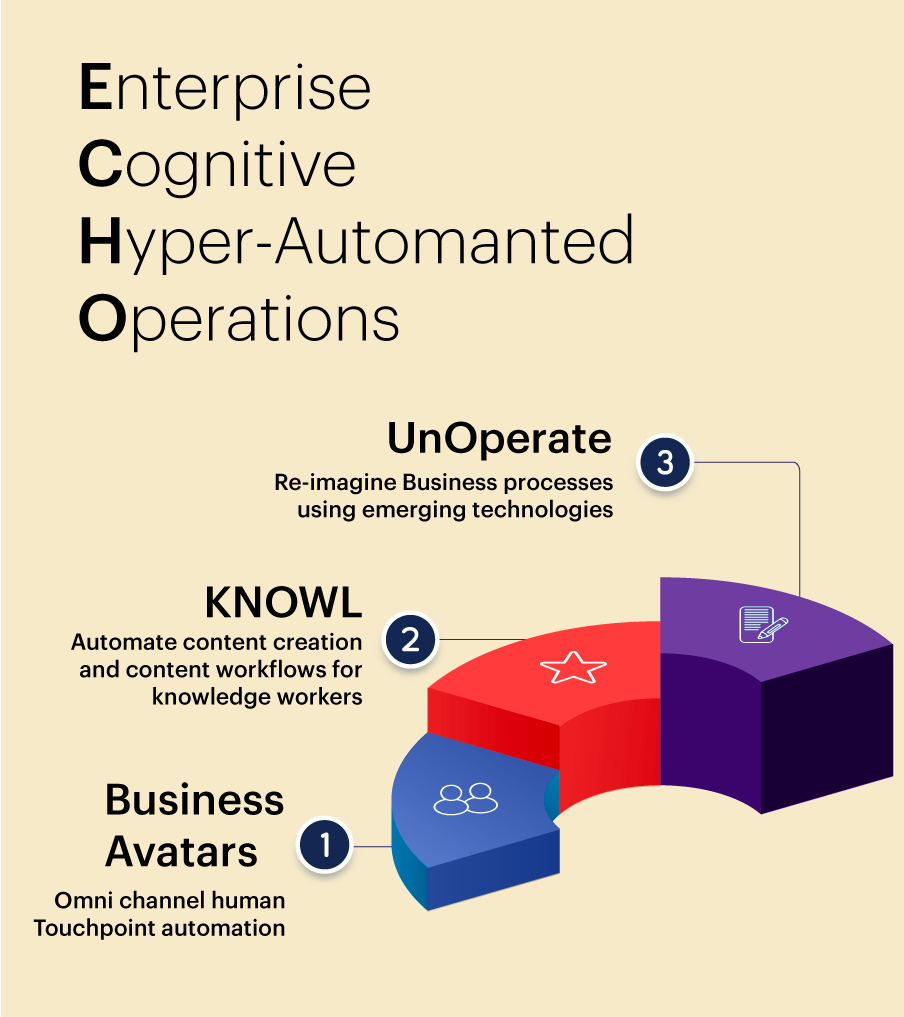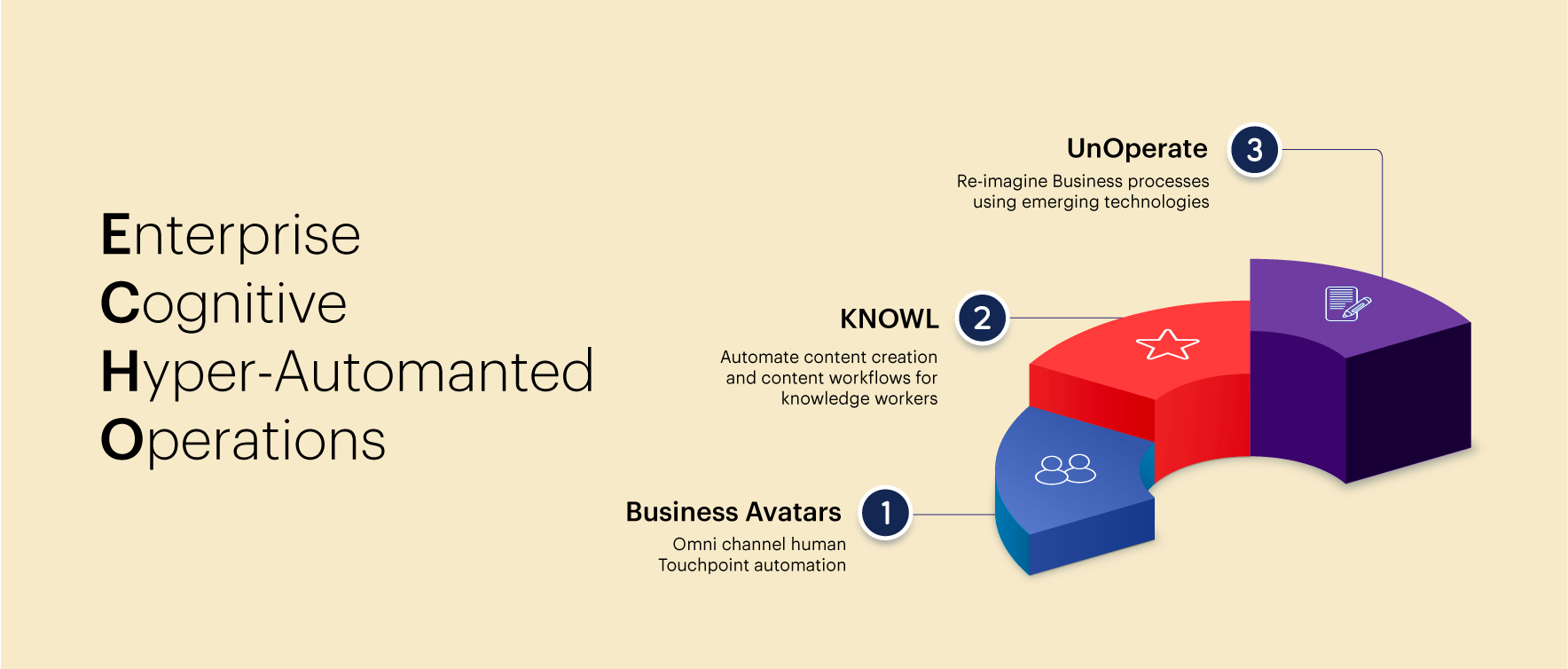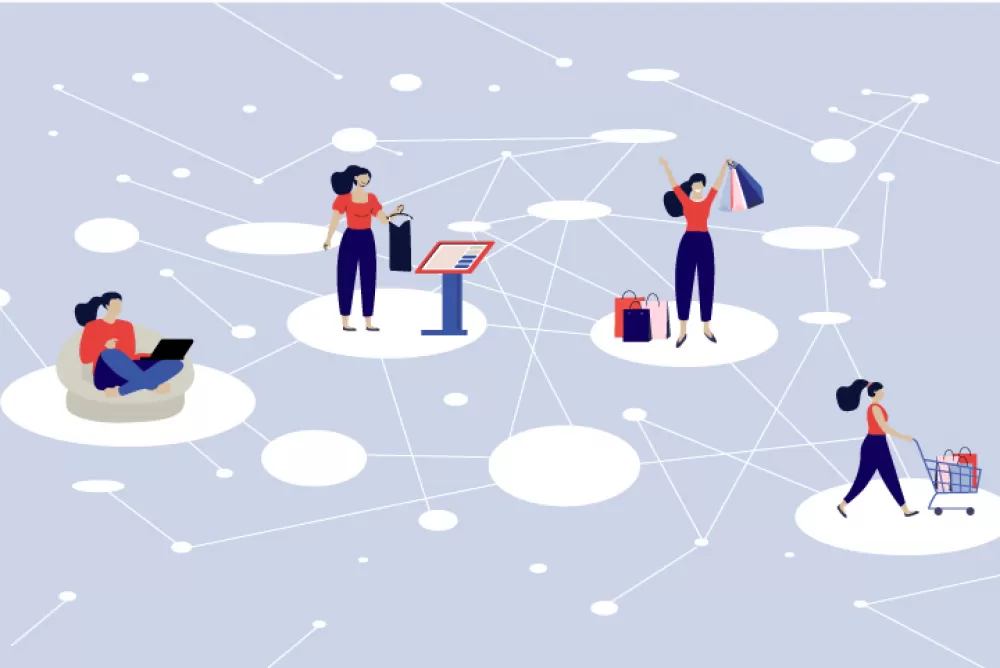
Jagath Subramaniam
Vice President - Experience, Engineering, and Data
Sarah, is a dedicated knowledge worker at a rapidly growing tech company. Every day, Sarah is bombarded with an overwhelming amount of content. She spends countless hours answering questions from customers/partners that are repetitive, she also spends a lot of her time on reading, researching, reviewing, approving, and writing content. Sometimes she wonders whether what she is doing is even required. With all this mundane work, the time she spends on creative aspects of her work is limited.
Sarah is not alone. There are one billion knowledge workers worldwide and according to industry estimates, they spend about 40 percent of their time reading, analyzing, creating, reviewing, and approving content – basically doing regular, mundane, structured, and repetitive work and are also immersed in nonvalue adding processes. A recent Microsoft study broadly corroborated this estimate and said that 64 percent of people reported they struggled with having the time and energy to do their job — and those people are 3.5x more likely to also struggle with innovation and strategic thinking – and herein lies the problem. We do a lot of busy work that is just routine and don’t push the envelope on anything. This isn’t just frustrating and inconvenient – it impacts businesses negatively in the long run.
AI can free up uninterrupted time and spark inspiration.
What if we automated bulk of this mundane work to give knowledge workers more time to deep dive and deliver creative work? This is what AI promises but here’s the thing – tasks cannot be automated without discretion and thoughtfulness.
Introducing ECHO – Enterprise Cognitive Hyper-automated Operations
Products and services that we work with, under the broad umbrella of ECHO are closely guided by the insight that automation for its own sake only magnifies systemic flaws. In our experience, if while applying technology, we do not consider a more sophisticated understanding of the task, we may end up creating duplication, friction, and inefficiencies in the process and that might impact not just the output but also employee morale negatively. So, it is important to reimagine a process or workflow before reconfiguring it, i.e. removing errors and duplications, priming with human-design principles before adding and applying the new layer of automation.
ECHO empowers Sarah to overcome her daily struggles and transform her role from one of reactionary tasks to strategic innovation. She will be able to work smarter, reduce errors, and make faster decisions, all while improving the experiences of both customers and employees.


Business Avatars
Optimized interactions
Business Avatar optimizes customer, employee, and developer touchpoints, enhancing the overall experience. The solution supports omni-channel communication and is available 24/7, ensuring consistent, high-quality engagement across all platforms.
Personalized and empathetic support
The avatars are designed to provide personalized experiences, helping to improve customer retention and employee satisfaction. They can adapt to individual needs and preferences, making interactions more meaningful and effective.
Integration with enterprise apps
Business Avatar seamlessly connects with existing enterprise applications, streamlining processes and improving the efficiency of customer and employee interactions.
KNOWL
Content automation
KNOWL automates repetitive content-related tasks, allowing Sarah to focus on high-value, creative work. This reduces content creation cycle time and improves overall content quality.
Insight discovery
With KNOWL’s advanced AI capabilities, Sarah can quickly uncover insights from large datasets, enabling faster and more informed decision-making.
Collaboration and consistency
Embedded workflow tools within KNOWL streamline collaboration across teams and ensure brand consistency in all content.
UnOperate
Process re-imagination
UnOperate goes beyond simple automation by re-imagining business processes with cutting-edge technologies like AR/VR, AI, and IoT. This results in optimized costs, improved customer and employee experiences, and enhanced quality.
Error reduction and simplification
By removing non-value-add steps and simplifying processes, UnOperate reduces rework and minimizes errors, leading to more efficient operations.
Agility in response
With UnOperate, Sarah’s company can respond more quickly to opportunities and threats, staying ahead of the competition and driving business outcomes more effectively.
AI must level with talent and culture to deliver results.
When the buzz around a piece of technology is as shrill as it is with AI now, business advantage lies in the ability to differentiate between adopting change for its own sake versus for strategic impact.
The potential of AI is exponential, but if organizations invest in initiatives without a comprehensive understanding of its power, reach, capabilities and connection to long-term goals, the result is likely to be missed targets, misalignments, trendy initiatives that don’t move the needle, poor employee morale, cost erosion, searching for solutions to apply technology to, and endless ways of taking one step forward and two steps back.
Think big but act small. The prospect of innovation, however groundbreaking, cannot transform into overnight solutions. We have already spoken about automation for its own sake versus automation for strategic purposes. Adoption scenarios, which consider wider economic challenges and habitual sensitivities provide a more practical sense of the pace and scale at which day-to-day activities could shift over time.
At Zensar, we are using ECHO in multiple domains, and it is resonating with many clients.













